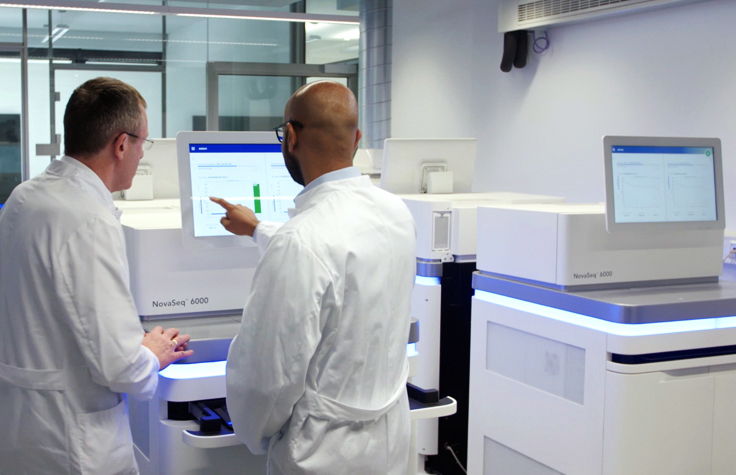
July 10, 2018
Munich Leukemia Laboratory (MLL), a state-of-the-art leukemia and lymphoma diagnostic and research laboratory based in Munich, Germany, was the first European customer to adopt the NovaSeq™ 6000 System platform.
MLL’s strategic decision to create a future path for whole-genome sequencing to help promote better health outcomes, reflects one of Illumina’s key strategies to connect genomics to the everyday lives of those living with cancer.
Professor Torsten Haferlach, CEO and Co-Founder of MLL, discusses their goal of sequencing 5,000 patients with different kinds of leukemias and lymphomas – to ultimately understand the baseline of the diseases. Hear how they are utilizing the flow cells and scalability of the NovaSeq 6000 System to expand their research further than before.
The NovaSeq System enables the study of genetic links between health and disease at an unprecedented scale by making it possible to sequence more samples at greater depth and take on projects that would otherwise be cost-prohibitive. By accelerating the trajectory of genomics with these systems, Illumina is making it possible to envision a future in which all people can benefit from precision medicine.
Learn more about the NovaSeq, here.
Learn more about MLL, here.
Stay tuned for more stories on how our NovaSeq Sequencing System is propelling discoveries that will enable a deeper understanding and better treatments for complex diseases.


